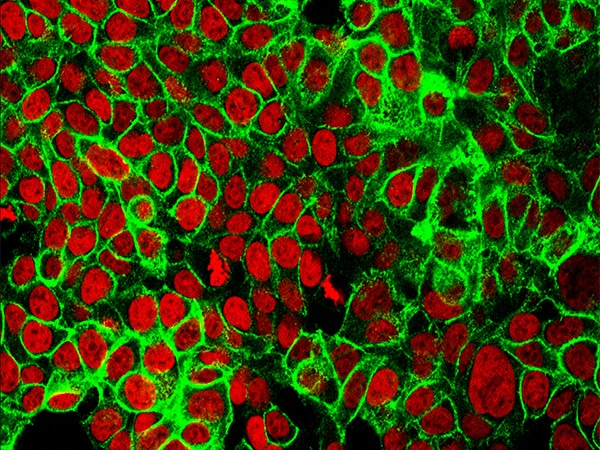Combining Immunotherapy for Colorectal Cancer
The combination of ipilimumab and nivolumab was approved by the FDA for metastatic colorectal cancer that is positive for certain genetic biomarkers.

The U.S. Food and Drug Administration (FDA) recently approved a combination of the immunotherapeutics ipilimumab (Yervoy) and nivolumab (Opdivo) for treating certain patients with colorectal cancer.
Specifically, the ipilimumab-nivolumab combination is intended for the treatment of metastatic colorectal cancer that is positive for either of two genetic biomarkers — microsatellite instability-high (MSI-high) or mismatch repair deficiency (MMR-deficient) — and that has progressed following treatment with a chemotherapy cocktail of fluoropyrimidine, oxaliplatin, and irinotecan.
Colorectal cancer is the second most common cause of cancer death in the United States, according to National Cancer Institute statistics. In 2019, 51,020 people are expected to die from the disease.
Researchers estimate that about 15 percent of the colorectal cancer cases diagnosed in the United States are MSI-high because of a DNA mismatch repair deficiency. These cancers have been shown to be responsive to treatment with the immunotherapeutics pembrolizumab (Keytruda) and nivolumab. This led to the FDA approval of pembrolizumab for treating any metastatic solid tumor found to be MSI-high or MMR-deficient, including for colorectal cancer, in May 2017, and to approval of nivolumab for treating MSI-high or MMR-deficient metastatic colorectal cancer in August 2017.
Ipilimumab and nivolumab work by releasing two different brakes on natural cancer-fighting cells of the immune system, CTLA4 and PD1, respectively. Therefore, researchers decided to test the idea that the combination of these immunotherapeutics might benefit more patients than nivolumab alone as part of the phase II CheckMate 142 clinical trial.
The data that led to the approval of the ipilimumab and nivolumab combination for treating MSI-high or MMR-deficient metastatic colorectal cancer showed that this idea was indeed correct.
Of the 82 patients in the trial who were treated with the nivolumab-ipilimumab combination, 46 percent had partial or complete tumor shrinkage. For 89 percent of these 46 patients, the tumor shrinkage lasted six months or longer. These results compare favorably with earlier data from 56 other patients enrolled in the trial who received only nivolumab; 28 percent of these patients had partial or complete tumor shrinkage, with 67 percent of these responses lasting six months or longer.
The FDA approval was rendered on July 10, 2018.
